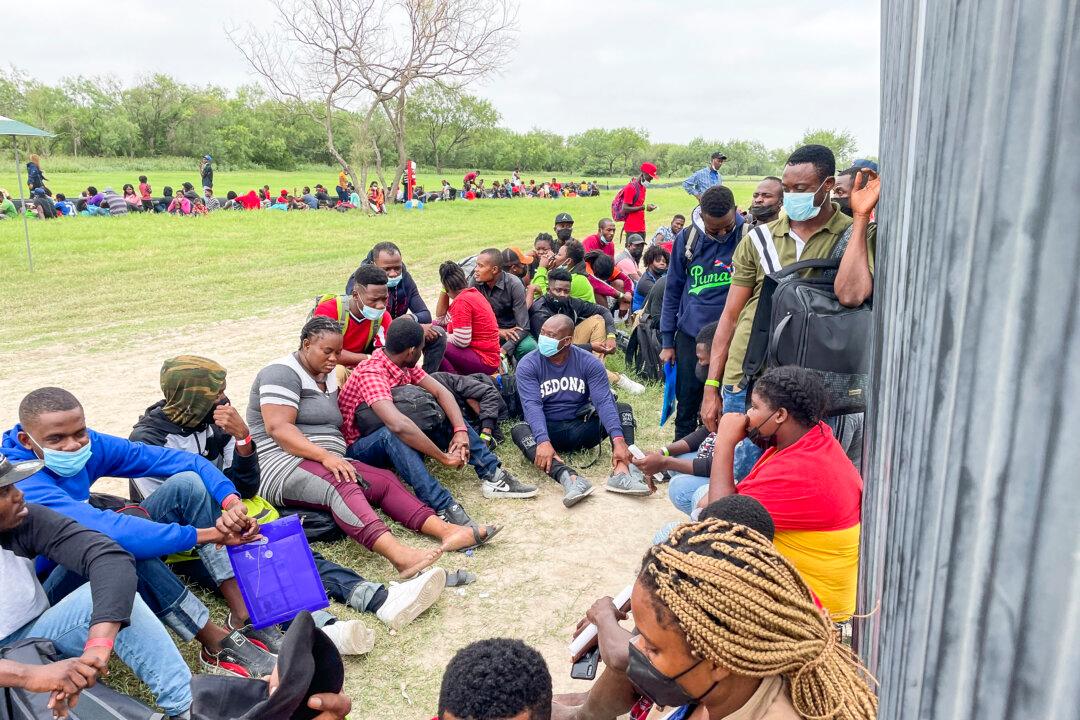The rate at which illegal immigrants are testing positive for COVID-19 has “increased significantly” in recent weeks, a Department of Homeland Security official said this week.
The number of Customs and Border Protection (CBP) officers who have tested positive has also risen, despite more and more of them getting vaccinated against the virus that causes COVID-19.





